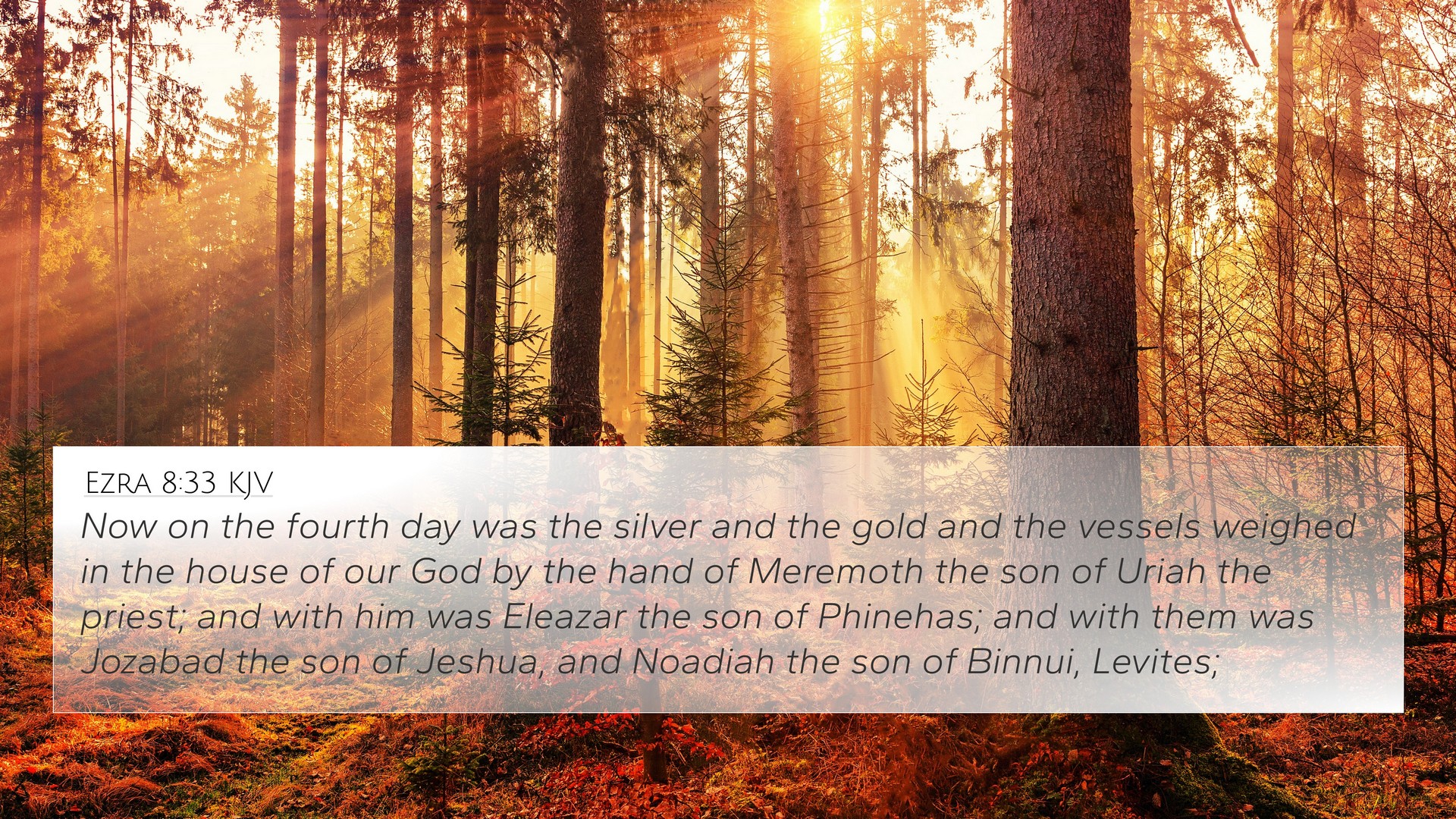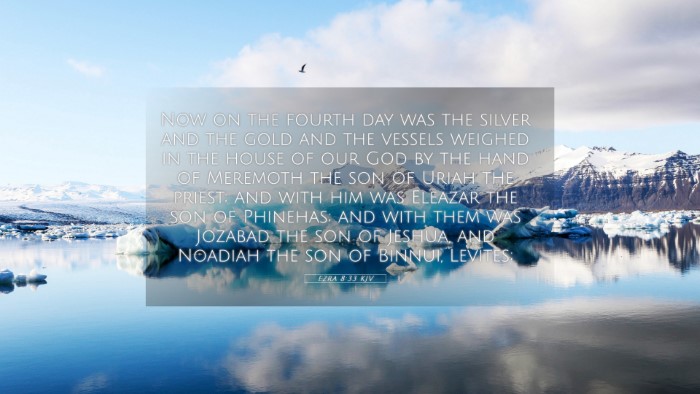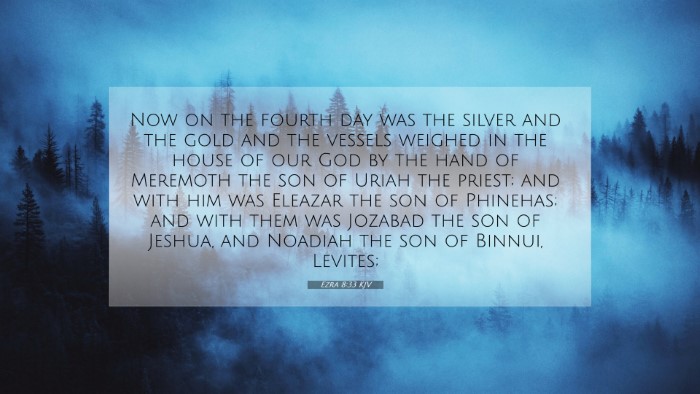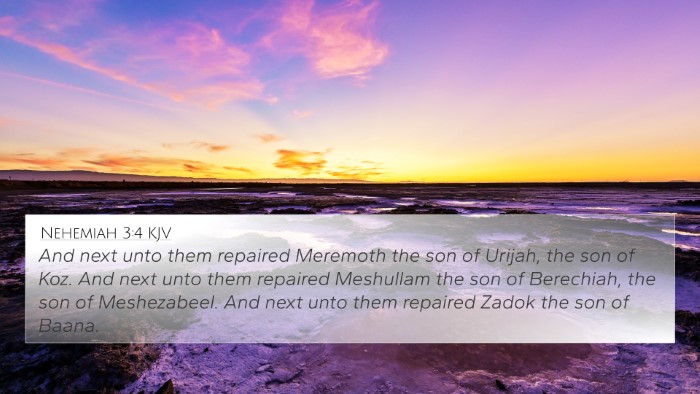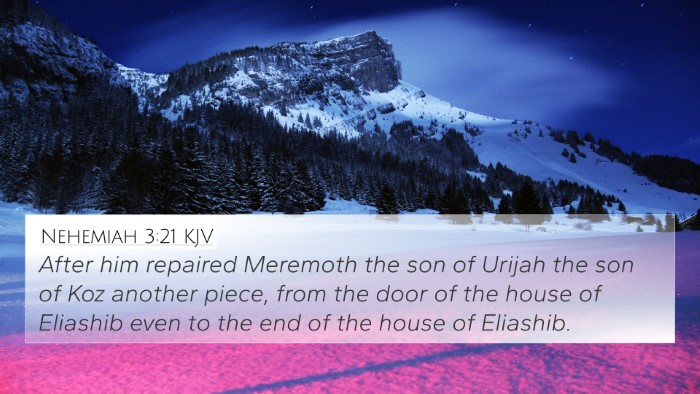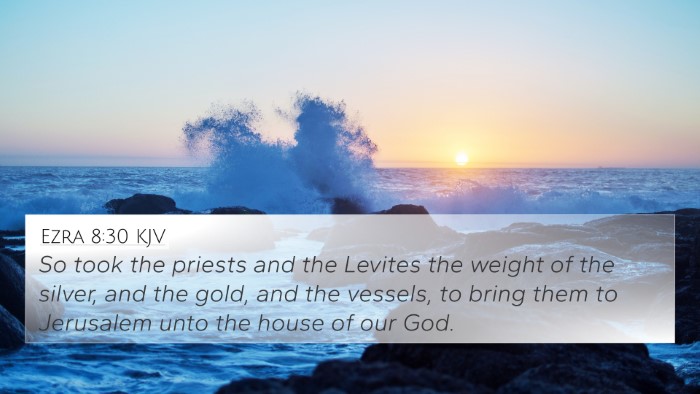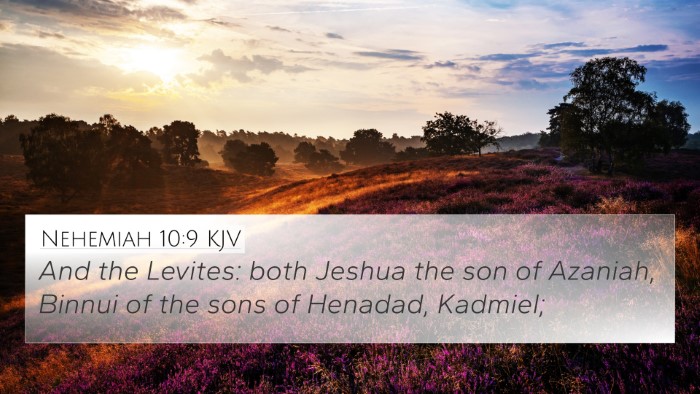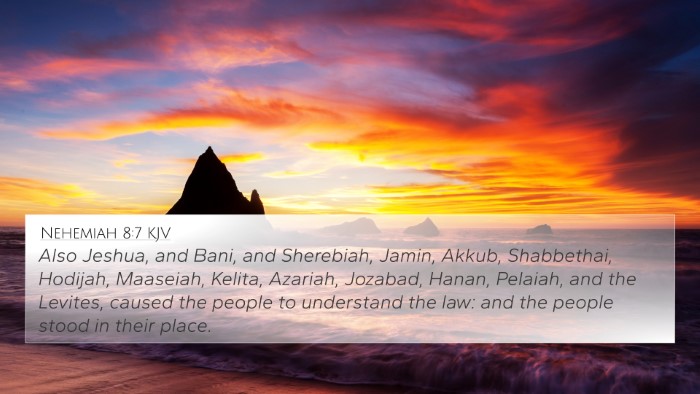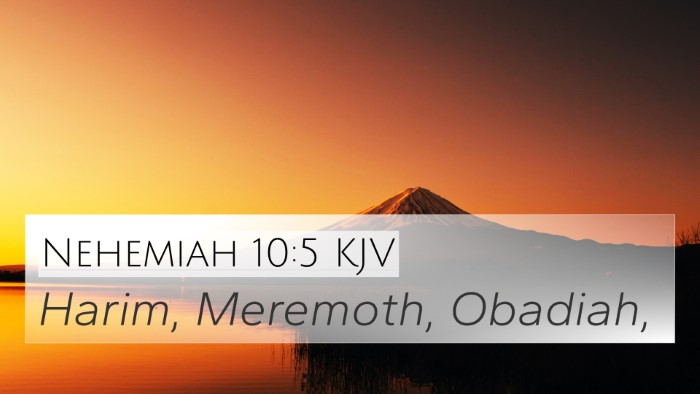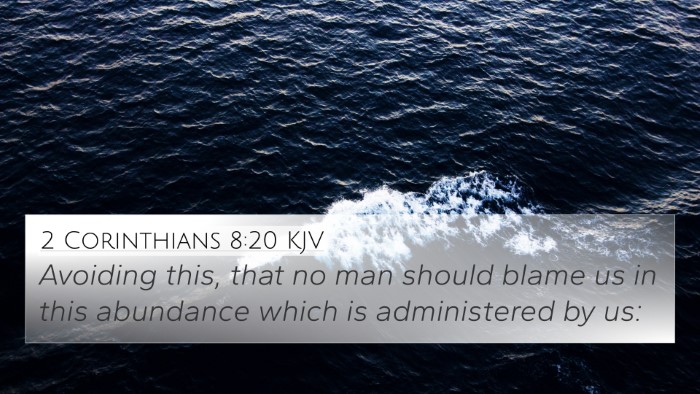Understanding Ezra 8:33
Ezra 8:33 states: "Now on the fourth day was the silver and the gold and the vessels weighed in the house of our God by the hand of Meremoth the son of Uriah the priest, and with him was Eleazar the son of Phinehas; and with them was the Levites, Josabad the son of Jeshua, and Noadiah the son of Binnuí, Levites."
Key Themes and Insights
This verse captures a moment during Ezra's return to Jerusalem, documenting the careful weighing of precious items intended for the temple. Here are the main insights:
- Accountability in Ministry: The act of weighing the silver, gold, and vessels signifies integrity and accountability in the service of God. Both Matthew Henry and Adam Clarke emphasize the importance of transparency when handling sacred items.
- Priestly Roles: Meremoth, Eleazar, and others highlighted in this verse signify the importance of priestly roles in maintaining the sanctity of worship and resources. Albert Barnes notes how leadership within the priesthood reflects God's order and provision.
- Community Involvement: The involvement of Levites in this process showcases the collaborative efforts required in worship and service, a theme supported through various biblical texts emphasizing unity in ministry.
- Divine Providence: The meticulous attention to detail in weighing the offerings points to God's providence, as He provides resources for His temple. All three commentators draw attention to the reverence due to God’s house, indicating that the items were intended for divine use.
Bible Verse Cross-References
This verse connects deeply with several other passages in the Bible, each reinforcing its themes:
- Exodus 30:13-15: The command regarding the giving of offerings demonstrates the principle of accountability in the worship of God.
- Numbers 3:49-51: This passage discusses the counting and handling of offerings, echoing the principle of careful stewardship.
- Nehemiah 12:44: This verse shows the ongoing responsibility for temple finances and offerings, emphasizing the continuity of service from Ezra to Nehemiah.
- 1 Chronicles 29:6-9: This section details how leaders contribute to the temple, paralleling the contributions made in Ezra's time.
- 2 Corinthians 8:20-21: Paul highlights accountability in the church funds, which resonates with Ezra's initiative to account for resources devoted to worship.
- Malachi 1:8-9: A warning against corrupt practices concerning temple offerings, drawing a stark contrast to Ezra’s commitment to purity in worship.
- Matthew 25:14-30: The parable of the talents calls for faithful stewardship, which aligns with the ethos present in Ezra 8:33.
Thematic Connections
The thematic connections between this verse and the cited scriptures demonstrate a consistent biblical principle regarding worship, integrity, and community involvement:
- Faithful Stewardship: Across these references, there is a recurring theme of managing resources dedicated to God efficiently. Ezra's careful weighing of items serves as a model.
- Community Responsibility: The involvement of various priests and Levites illustrates that worship is a communal effort, resonating with verses that emphasize the Body of Christ (1 Corinthians 12).
- Consecration of Offerings: The repeated emphasis on dedicating offerings and finances carefully correlates with passages that discuss the holiness of God’s provisions (Hebrews 12:28-29).
Comparative Bible Verse Analysis
This verse’s detailed handling of temple treasures invites comparative analysis with various New Testament teachings:
- Just as Ezra weighed offerings meticulously, 2 Corinthians 9:7 encourages cheerful giving, reminding believers to present their resources intentionally.
- Ezra's accountability reflects in Acts 5:1-11 where Ananias and Sapphira faced judgment for misrepresentation in their giving.
How to Utilize Biblical Cross-References
For those seeking deeper understanding of Ezra 8:33 and its implications, various tools for Bible cross-referencing can aid in comprehensive study:
- Consulting a Bible concordance can provide quick access to related themes and ideas across the text.
- Employing a cross-reference Bible study guide allows for structured exploration of connecting verses.
- Utilizing Bible reference resources or comprehensive cross-reference materials enhances the study experience.
Conclusion
In summary, Ezra 8:33 is a scriptural cornerstone highlighting the importance of integrity, communal effort, and reverence in worship offerings. By exploring its cross-references, believers can gain insights into the broader themes of stewardship and faithfulness throughout Scripture.
Utilizing a careful analysis of these connections enriches one's understanding of biblical themes and principles, leading to deeper spiritual insights and practical application in the lives of believers today.
